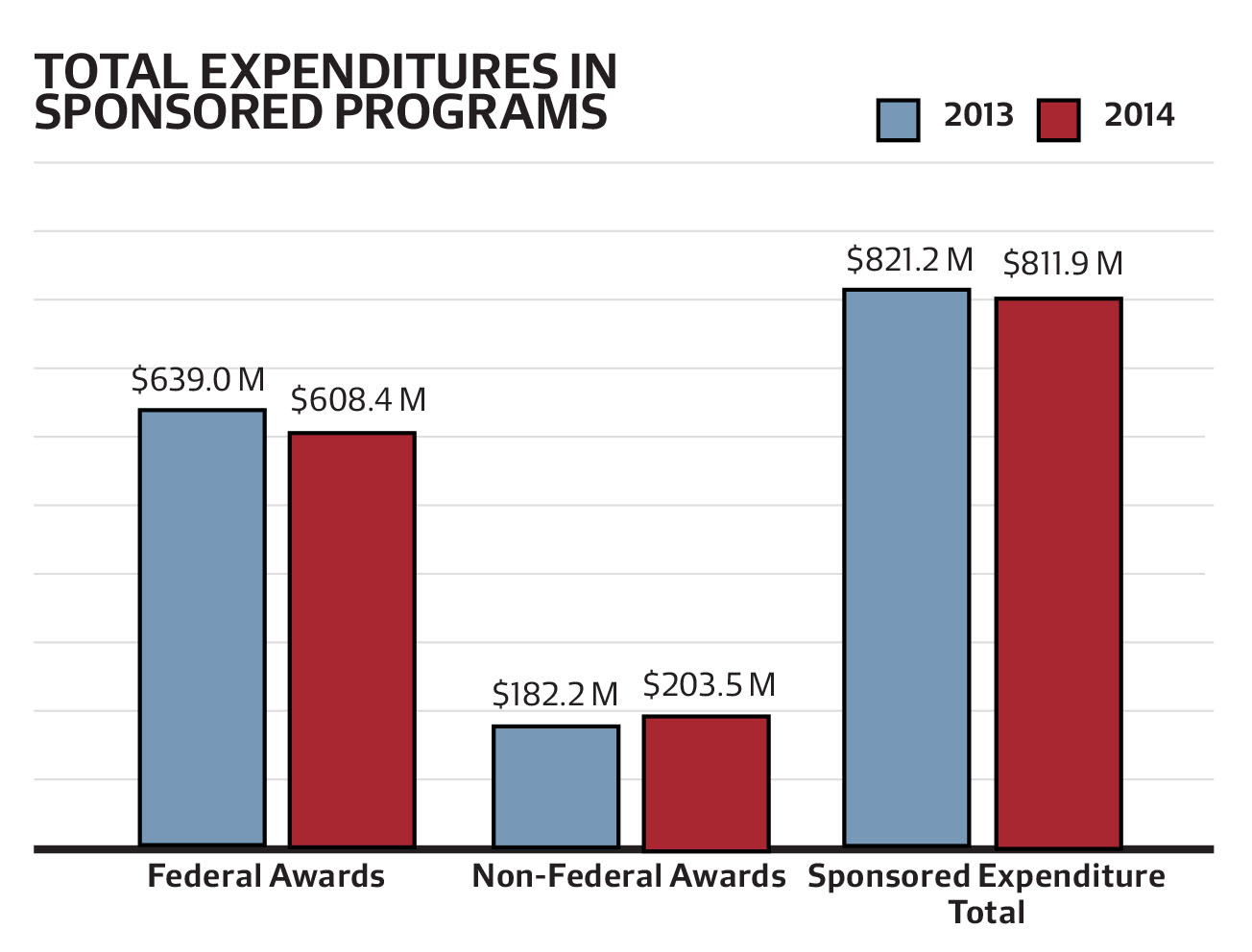The Harvard research funding crisis has plunged the institution into turmoil, as researchers scramble to preserve groundbreaking projects amid an unprecedented stop-work order from the federal government. This directive, which predominantly impacts initiatives within the Wyss Institute, threatens the future of vital organ-on-a-chip technology developed by Don Ingber and his team. With Harvard’s lawsuit against the government citing the demands for governance changes and funding audits as unlawful, the future of research hangs in the balance. Key scientific innovations, which are essential to advancements in healthcare and space exploration, now face an uphill battle for survival in the face of frozen funding. As income streams vanish, Harvard must navigate the legal landscape while safeguarding the talent and projects that have historically driven American innovation and excellence.
The ongoing turbulence at Harvard University due to the recent funding impasse reflects broader tensions affecting academic institutions nationwide. Researchers at the helm of pioneering studies now find themselves navigating the murky waters of a stop-work order, which has left promising collaborations and experimental efforts dangling. The Wyss Institute’s notable contributions, particularly in organ-on-a-chip technology, are now at risk, drawing attention not only for their potential medical applications but also for their implications in space exploration. As the university engages in a legal battle to contest the government’s funding freeze, the stakes have never been higher for scientists and scholars who depend on consistent support to fuel their projects. This funding crisis not only threatens the integrity of vital research but also casts a shadow over the future of scientific inquiry within prestigious academic circles.
Understanding the Harvard Research Funding Crisis
The recent Harvard research funding crisis has reverberated through academic circles, raising concerns about the future of scientific innovation at one of the world’s premier institutions. The crisis stems from a stop-work order issued in response to the Trump administration’s demands for changes in university governance, hiring practices, and faculty oversight. This order has effectively frozen approximately $2.2 billion in research funding, impacting numerous vital projects, including organ-on-a-chip technologies that hold promise for advancing medical research. The ramifications of this funding freeze could be catastrophic, halting groundbreaking studies and driving away top-tier researchers.
As the dust settles, many are left pondering the long-term consequences of the funding crisis on Harvard and the broader academic landscape. The disruption to research operations not only obliterates existing projects but also creates a ripple effect, as talented researchers may seek opportunities elsewhere. The loss of such individuals could undermine America’s innovative edge in scientific fields critical to national interests, from healthcare to space exploration. Don Ingber, leading the fight against the funding cuts, has highlighted the critical nature of these projects in understanding and modeling the effects of radiation on human health, underscoring the need for robust academic institutions to maintain a competitive edge in global scientific endeavors.
The Legal Battle and Its Implications
The legal battle stemming from Harvard’s rejection of the government’s demands has unfolded dramatically, with the university filing a lawsuit to challenge the legality of the stop-work order. While the lawsuit seeks to restore funding, the uncertainty surrounding the outcome adds another layer of complexity for researchers at the Wyss Institute. Don Ingber faces an uphill battle, as he navigates through the labyrinth of legal proceedings while trying to protect his projects and personnel. The stakes are incredibly high, as the implications of this conflict could reverberate throughout the higher education landscape, raising questions about academic freedom and the governmental role in research funding.
With Harvard firmly standing its ground in court, the situation presents a pivotal moment in the relationship between the administration and academic institutions. The outcome of the lawsuit could either confirm the secure partnership that has historically driven innovation or signify a dangerous shift towards government intrusion in academic governance. Anger and frustration are palpable amongst researchers who rely on government grants, as they realize that the future of their work hinges on the outcome of a legal confrontation that many in academia deem as an attack on the very essence of scientific inquiry.
Impact of Organ-on-a-Chip Technology on Medical Research
Organ-on-a-chip technology is revolutionizing the way scientists understand human physiology and disease by providing a more accurate model of human organs in a controlled laboratory setting. Don Ingber’s projects utilizing this technology are crucial, not only for advancing fundamental research but also for developing new therapies. The platforms allow researchers to simulate various environmental conditions, including radiation exposure, which is increasingly relevant in today’s context of space exploration and cancer treatments. However, the recent funding crisis threatens the trajectory of such innovations, stunting potential breakthroughs that could save lives.
The research stemming from organ-on-a-chip projects has the potential to address critical health challenges and provide new avenues for drug development. As Ingber highlights, understanding radiation damage to tissues is not just a matter of scientific curiosity but a necessity in light of increased reliance on nuclear power. The possibility of halting such vital research due to the uncertainty surrounding funding raises ethical questions about priorities in healthcare and scientific exploration. In a time when innovation could be key to solving complex medical problems, it is imperative that funding flows to support such transformative technologies.
Retaining Talent Amidst Uncertainty
The ongoing funding crisis has created a climate of anxiety among researchers at Harvard, particularly for those whose careers are tightly woven into the fabric of funded projects. The uncertainty of job security has led to difficult decisions, with some talented scientists, like the European postdoctoral researcher, opting to leave for opportunities abroad despite their potential impact within American academia. Ingber’s efforts to provide recommendations for exiting researchers reflect the urgency of retaining talent amidst a climate that seems increasingly hostile to scientific inquiry.
Moreover, the loss of key personnel due to the funding crisis could have lasting effects on collaboration and innovation at American research institutions. When scientists choose to leave due to job security concerns, it diminishes the collective knowledge and expertise that drives progress in various fields. As Ingber has observed, America’s strength has traditionally relied on its ability to attract the best minds from around the world. The current circumstances jeopardize this strength, as damaging perceptions of safety and stability in the U.S. may deter future talent. In fostering a healthy research environment, it becomes crucial to address the underlying issues that lead to such instability.
The Role of Government Funding in Scientific Innovation
Government funding has historically played a pivotal role in nurturing scientific innovation in the United States, creating an ecosystem where academia and industry can thrive. The recent halt in federal funding to institutions like Harvard poses a significant threat to this partnership, jeopardizing projects aimed at advancing healthcare, technology, and environmental science. Don Ingber’s assertion that the current administration’s actions could dismantle the innovation engine that has propelled America’s economy underscores the necessity of collaboration between governmental bodies and research institutions.
The flow of funding not only supports research but also catalyzes collaborations that drive technological advancements. Research projects often serve as breeding grounds for new ideas and innovations that can translate into industry applications and stimulate economic growth. If the current funding crisis persists, the ripple effects could hinder America’s competitive edge in global science and technology. It is imperative for policymakers to acknowledge the role of robust academic research in driving progress and to reconsider strategies that support rather than stifle this crucial partnership.
Navigating the Fallout from the Funding Crisis
As the fallout from the funding crisis continues to unfold, Harvard and other academic institutions find themselves at a crossroads. The interruption of several significant research projects raises critical questions about strategic planning in times of uncertainty. Institutions must navigate the fine line between sustaining innovative efforts and managing limited resources while seeking alternative avenues for funding. Ingber’s proactive approach of finding internal funding sources to maintain momentum in his projects highlights the adaptive strategies necessary for survival in times of crisis.
However, the burden of maintaining scientific research within a destabilized funding environment falls heavily on researchers. The pressure to secure resources and deliver results can detract from the very essence of scientific exploration. As respected scientists scramble to protect their work and staff from the adverse effects of the funding freeze, the potential for creativity and long-term vision is stifled. The current situation exemplifies the critical need for institutions to cultivate resilience and adaptability in their research strategies to weather future challenges.
The Broader Implications for Scientific Research
The implications of Harvard’s funding crisis transcend the university itself, potentially affecting the entire landscape of scientific research in the United States. The incident poses a dire warning about the fragility of academic freedom and the consequences of political strife on research endeavors. As Don Ingber notes, the partnership between academia and government has been fundamental to fostering innovation, and any disruption in this relationship could have grave repercussions for future research efforts across various fields.
If funding restrictions become a norm rather than an exception, the consequences may extend far beyond the current projects at Harvard. The decline in federal funding could lead to decreased research outputs, impacting everything from public health initiatives to technological advancements critical for our future. Scientists may feel pressured to alter their research agendas to align with shifting political climates rather than pursuing genuine scientific inquiry. This growing uncertainty compels a reassessment of how research funding is secured, managed, and safeguarded against politically charged actions that disrupt the continuity of scientific progress.
Maintaining Innovation Through Collaboration
In an era where funding cuts threaten to curtail scientific innovation, the importance of collaboration has never been more apparent. Don Ingber’s work at the Wyss Institute exemplifies how interdisciplinary teams can drive scientific breakthroughs, even in the face of adversity. By leveraging collective expertise, research teams can pivot their focus to different funding opportunities, ensuring that vital projects continue to receive the support they need. Such collaborative efforts can also strengthen ties between academia and industry, cultivating partnerships that enhance the impact of scientific research.
Moreover, these collaborative frameworks enable researchers to share resources and mitigate the challenges posed by funding shortages. By pooling grant resources and knowledge, institutions can tackle complex scientific problems that no single entity could address alone. Ingber’s involvement in engaging with media and writing op-eds further illustrates the importance of advocacy in securing public support for continued research funding. Strengthening networks across institutions can be a proactive step toward safeguarding innovation and ensuring that groundbreaking projects can thrive despite external challenges.
Fostering a Resilient Future in Research
To combat the effects of the funding crisis and foster a resilient future, it is imperative that academic institutions and researchers adapt swiftly to changing circumstances. Ingber’s approach to protecting his team and repurposing funds is instructive for other researchers facing similar challenges. By developing contingency plans and exploring diverse funding sources, scientists can better navigate unexpected barriers to their work. This adaptability is not merely a temporary fix; it necessitates a paradigm shift in the way research is conducted and funded to ensure longevity.
Additionally, academia must work collectively to advocate for policies that protect research funding and maintain the integrity of academic freedom. Mobilizing the scientific community to push back against arbitrary funding cuts and policies that threaten innovation is essential. In doing so, researchers can assure that American innovation will continue to flourish, preserving the partnership between government and academia that has historically fueled advancements in science and technology.
Frequently Asked Questions
What is the Harvard research funding crisis and how does it affect projects like organ-on-a-chip technology?
The Harvard research funding crisis refers to the recent freeze of approximately $2.2 billion in research funding by the federal government, triggered by Harvard’s rejection of certain demands from the Trump administration. This has led to stop-work orders on key projects, notably those involving organ-on-a-chip technology developed at the Wyss Institute. This freeze disrupts ongoing research efforts and impacts the employment of researchers and students involved in these crucial scientific innovations.
How has Don Ingber responded to the Harvard research funding crisis?
In response to the Harvard research funding crisis, Don Ingber, the founding director of the Wyss Institute, has emphasized his commitment to protecting his team and projects. Following the stop-work order, he has been strategizing to reallocate researchers to other funding sources while navigating the uncertainties caused by the lawsuit that Harvard filed against the government to restore funding. Ingber highlights the need to maintain scientific innovation despite challenging circumstances.
What are the implications of the stop-work order on Harvard’s research capabilities?
The stop-work order issued as part of the Harvard research funding crisis effectively halts significant projects, particularly those utilizing organ-on-a-chip technology. This interruption not only risks the loss of critical research advancements but also jeopardizes the careers of students and postdoctoral fellows. With funding frozen, the institute’s capability to attract and retain top talent may decline, impacting future scientific innovation and collaboration.
What role does the Harvard lawsuit play in the research funding crisis?
The Harvard lawsuit is a critical component of the research funding crisis, as it challenges the legality of the federal government’s demands that led to the funding freeze. Filed after the stop-work orders were issued, the lawsuit seeks to restore vital research funding for Harvard’s initiatives, including those that utilize organ-on-a-chip technology. The outcome of this lawsuit could determine not only the future of current projects but also the broader landscape of academic research funding in the U.S.
How does the Harvard research funding crisis impact the future of scientific innovation?
The Harvard research funding crisis poses serious threats to the future of scientific innovation. With significant funding cuts and ongoing stop-work orders on critical projects, researchers may face disruptions that hinder their work. This instability could deter new talent from entering the field and limit the collaborative environment essential for breakthroughs in areas like organ-on-a-chip technology. The situation raises concerns about sustaining America’s innovation engine, which relies heavily on university-driven research.
What are the long-term consequences of the funding freeze on Harvard researchers?
The long-term consequences of the funding freeze on Harvard researchers could include talent attrition, diminished research output, and a slowdown in scientific innovation. Researchers may seek opportunities elsewhere, leading to a loss of expertise and disruption of ongoing projects. Additionally, the funding crisis could create a climate of uncertainty, deterring potential international talent from considering Harvard for their academic careers, ultimately impacting the university’s reputation as a leader in scientific research.
| Key Points | Details |
|---|---|
| Stop-work Order | Harvard received an order halting projects, impacting $19 million in research funding. |
| Response to Administration Demands | Harvard rejected demands from the Trump administration leading to a freeze of $2.2 billion in research funds. |
| Legal Actions | Harvard filed a lawsuit against the government asserting the funding freeze is unconstitutional. |
| Impact on Researchers and Projects | Researchers face uncertainty with project interruptions, risking significant loss of work and progress. |
| Future of Innovation | The crisis threatens America’s innovation engine and may deter international talent from joining U.S. research. |
Summary
The Harvard research funding crisis represents a significant turning point for academic institutions and systems of innovation in the United States. As federal funding is frozen and research projects are halted, the consequences for scholars, students, and the broader scientific community are dire. The administration’s demands have sparked legal battles that could lead to a re-evaluation of the partnership between government and academia, which has historically fueled American innovation. The ongoing uncertainty may alienate potential scientists and researchers from around the globe, jeopardizing the future of groundbreaking work essential for advancements in technology and life sciences.



